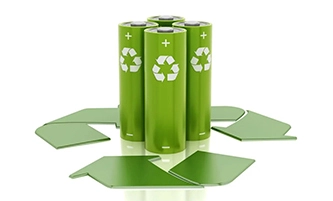3.7 V 150mAh Lithium Ion Battery Application
Lithium Polymer Battery For Alarm Clock
Start your day reliably with our lithium batteries designed for alarm clocks. Resistant to varying temperatures, these batteries ensure your alarm clock functions consistently,even during colder weather, guaranteeing you wake up on time. Their high energy density means fewer battery changes, offering peace of mind for uninterrupted mornings.
Lithium Polymer Battery For Remote Control
Our lithium batteries for remote controls provide extended longevity due to their high energy density, reducing the frequency of replacements. With low self-discharge rates, these batteries maintain power even during extended periods of remote inactivity.
Lithium Polymer Battery For Forehead Thermometer
Specifically crafted for forehead thermometers, our lithium batteries ensure accuracy and reliability with high energy density and exceptional low-temperature resistance. Consistent performance guarantees precise temperature readings for essential healthcare monitoring. Their adaptable designs seamlessly integrate into various thermometer models, ensuring uninterrupted functionality.
Lithium Polymer Battery For Makeup Mirror
Engineered for makeup mirrors, our lithium batteries ensure long-lasting power with their high energy density, perfect for daily beauty routines. Their stable and dependable performance supports uninterrupted use, ensuring flawless beauty regimens. Moreover, these batteries' versatile shapes effortlessly accommodate various mirror designs, providing reliable and enduring power for consistent usage.
Lithium Polymer Battery For Glucose Meter
Our lithium batteries for glucose meters excel in high energy density, ensuring prolonged and consistent power for accurate readings. Their exceptional low-temperature resistance guarantees reliable performance in various environmental conditions, crucial for uninterrupted usage in healthcare settings. With customizable shapes, these batteries seamlessly integrate into different glucose meter designs, providing reliable and customizable power solutions for diabetic
Welcome to Ufine's collection of 3.7V lithium-ion batteries ranging from 30mAh to 500mAh. Explore a diverse range of compact and lightweight batteries suitable for various electronic devices, from wearable gadgets to tiny sensors. Whether you need a reliable power source for your IoT project or a backup battery for your portable device, you'll find an ideal solution here.The Complete Guide For 3.7 V 150mAh Lithium Ion Battery
A 3.7 V 150mAh lithium-ion battery serves as a crucial power source for various electronic devices. This guide delves into its components, functionalities, and best practices for optimal use.
Part 1. Advantages and Applications
The 3.7 V 150mAh lithium-ion battery boasts lightweight construction and high energy density, making it ideal for portable devices like smartphones, GPS systems, and handheld gaming consoles. Its rechargeable nature contributes to cost-effectiveness and reduced environmental impact. This battery type finds extensive use in medical devices, ensuring consistent and reliable power for critical equipment.
Part 2. Technical Specifications
Understanding the technical specifications is essential. The 3.7 V rating indicates its nominal voltage, while the 150mAh capacity determines its charge-holding capability. This battery's discharge rate influences how quickly it can deliver power to a device. Charging requirements vary, with compatibility across multiple charging systems, emphasizing the importance of using the right charger to avoid damage or reduced battery lifespan.
Part 3. Safety and Handling
Proper handling and safety precautions are paramount. Lithium-ion batteries are sensitive to temperature extremes and improper charging, which can lead to overheating or even explosion. Certified batteries with protective circuitry offer safeguards against overcharging, over-discharging, and short circuits. Storing batteries in a cool, dry place away from direct sunlight helps maintain their health and performance.
Part 4. Maintenance and Longevity
To extend battery life, adhere to recommended usage practices. Avoid complete discharges, which strain the battery, and opt for partial charges instead. Regularly update device firmware or software to ensure optimized battery performance. Keeping batteries at around 50% charge during long-term storage prevents degradation.
Part 5. Buying Guide and Recommendations
For reliable and customized solutions, consider sourcing your 150mAh 3.7 V lithium-ion batteries from Ufine custom battery. Our commitment to quality assurance and tailored battery solutions ensures dependable performance for your specific needs.
Battery Specification
-
1. Mechanical Characteristics
Cell 492121 PCM Yes NTC No Weight appr. 3.7g Configuration 1S1P -
2. Electrical Specification
Capacity 150mAh Nominal Voltage 3.7V Energy 0.555Wh Internal Resistance less than 280mΩ Max. Charge Voltage 4.2V Discharge Cut Off 2.75V Max. Charge Current 150mA Max. Discharge Current 150mA Standard Charge Current 30mA Standard Discharge Current 30mA Charging Temperature 0℃ to 45℃ Discharging Temperature -20℃ to 60℃ Storage Temp.Range 1 year at -20℃ to +30℃3 mos. at -20℃ to +45℃1 mo. at -20℃ to +60℃ Cycle life 100 cycles ≥92%300 cycles ≥88%500 cycles ≥80% -
3. Cell protection
Overcharge Detection 4.28V ±50mV (80 to 200msec delay, release 4.08V ±50mV) Overdischarge Detection 2.4V ±100mV (40 to 120msec. delay, release 3.0V ±100mV) Overcurrent Detection 2.5A to 4.5A (5 to 10msec. delay) Short protection Yes
Battery Capacity Testing
Before shipment, each lithium battery undergoes meticulous testing to validate voltage, current, and other essential parameters, ensuring consistency and reliability in performance.

Environmentally Friendly
We use A-grade batteries, eco-friendly, safe and no droplet, energy-saving and environmentally friendly, economical and durable.
Lipo Battery Cell Capacity Fast Calculator
Please enter your battery information to calculate the battery capacity and energy.
The capacity calculated by this tool is only an approximate value. If you need an accurate assessment, please contact our professional engineers.














